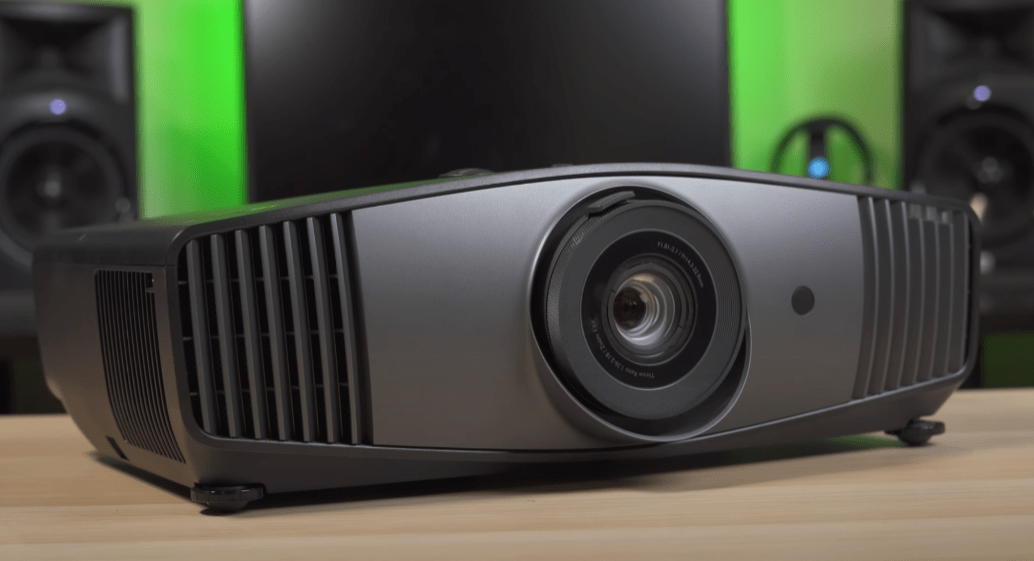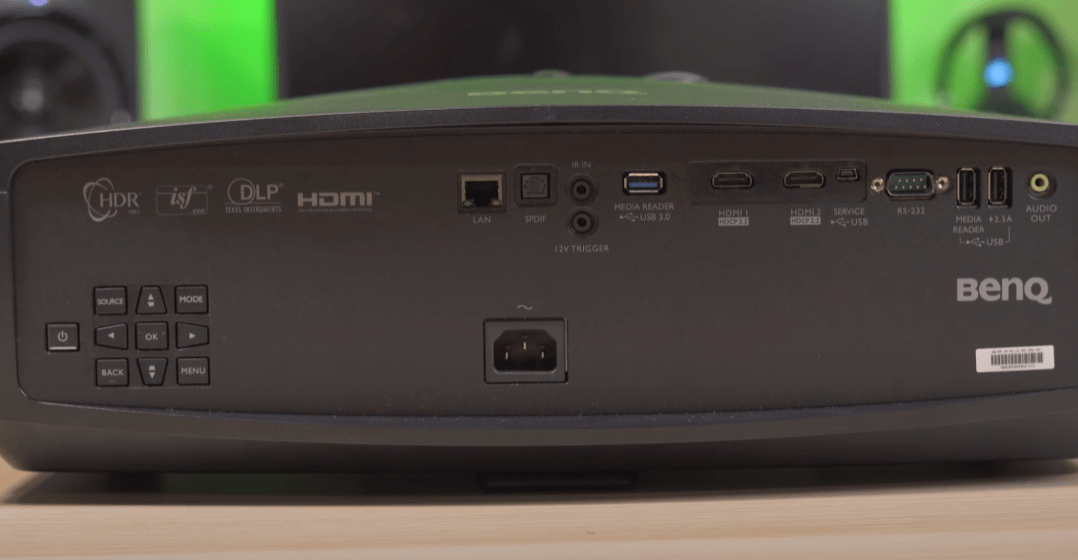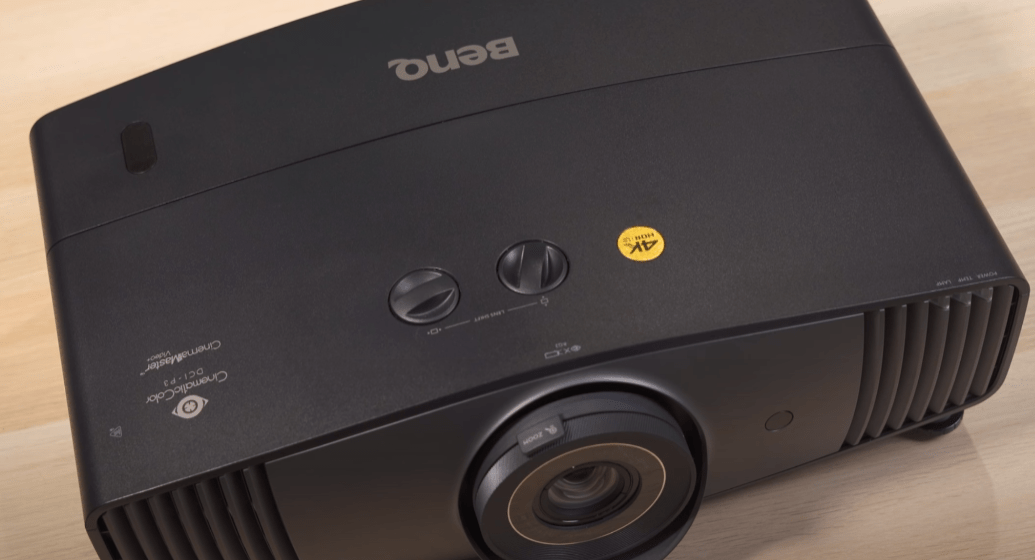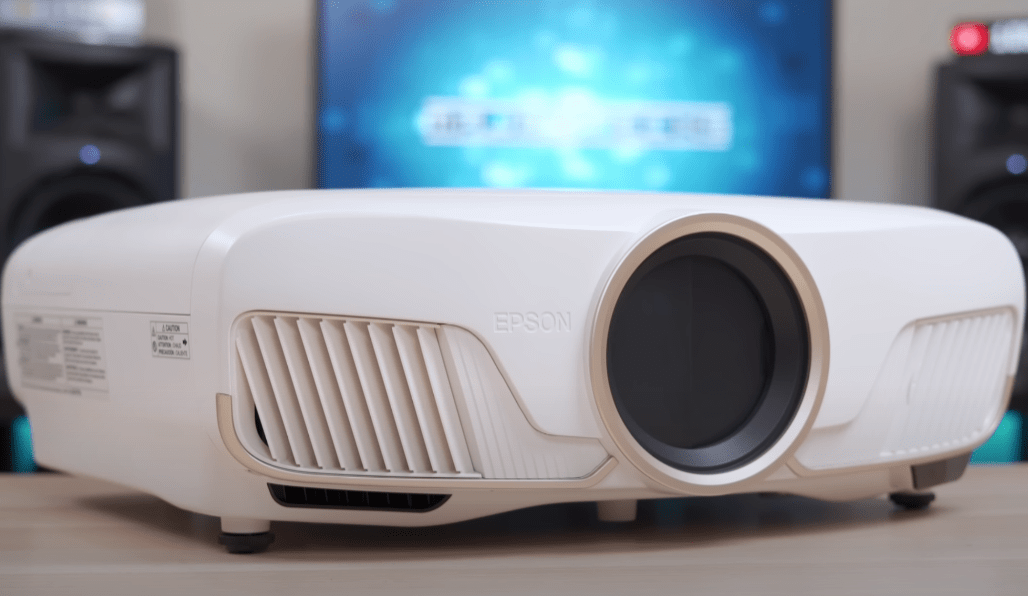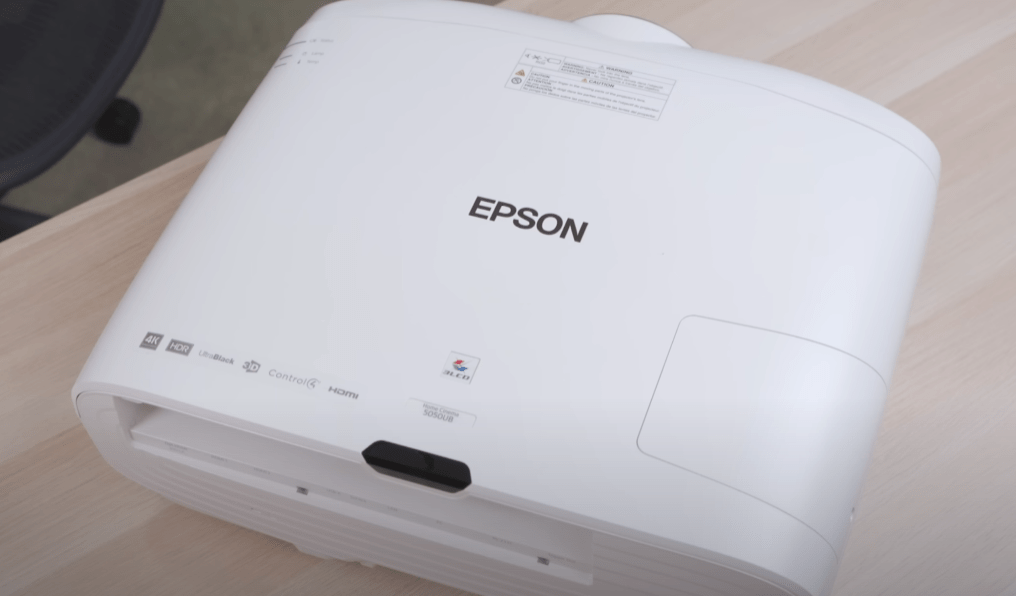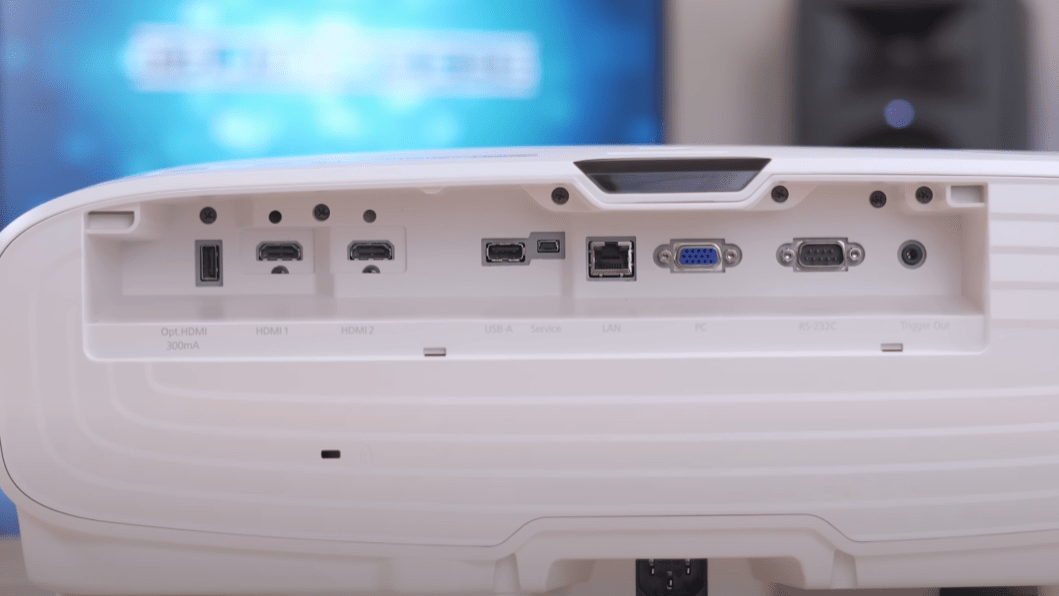At gagadget.com, your trust is our priority. We follow strict quality standards in our research, tests, and analysis of video projectors, to give you the best experience. Learn more
BenQ HT5550 vs Epson 5050UB
Hey everyone, Jim here from Gagadget. Today, I'm pitting two highly popular 4K projectors against each other: the BenQ HT5550 and the Epson 5050UB. Both deliver stunning Ultra HD resolution, HDR support, and advanced image processing for a truly cinematic experience. But they also have some key differences in brightness, contrast, color technology, and more that could make one a better fit for your home theater.
I've spent quality time with both projectors, evaluating picture quality, installation flexibility, gaming performance, and overall value. In this in-depth comparison, I'll share my hands-on experience to help you decide which one will best power your big screen blockbusters. Let's dive in!
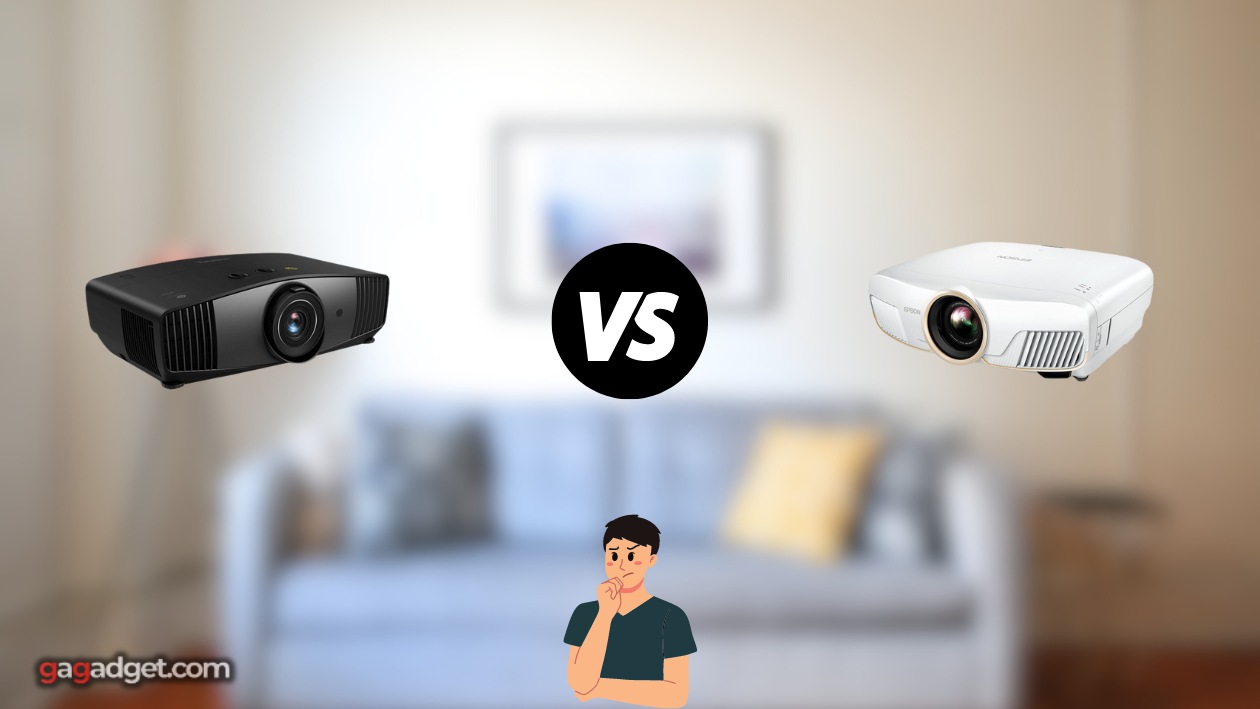
BenQ HT5550 vs Epson 5050UB: Quick Overview
I know your time is valuable, so let's start with the high-level takeaways:
The BenQ HT5550 and Epson 5050UB are both exceptional 4K projectors for dedicated home theaters. The HT5550 has a clear edge in color accuracy and cinematic presentation with its DCI-P3 color space coverage and HDR-PRO tone mapping. The 5050UB counters with higher brightness, superior contrast and black levels, and better input lag for gaming.
I recommend the BenQ HT5550 for discerning movie watchers who want the most authentic digital cinema color and HDR experience. But if you have a larger screen, want deeper blacks, or plan to do serious 4K gaming, the Epson 5050UB is the more versatile and capable performer overall.
Table of Contents
- BenQ HT5550 vs Epson 5050UB: Full Comparison
- 5050UB vs HT5550: Design
- BenQ HT5550 or Epson 5050UB: User Reviews
- BenQ HT5550 and Epson 5050UB Alternatives
- Which One Should You Buy
BenQ HT5550 vs Epson 5050UB: Comparison
| Specs | BenQ HT5550 | Epson 5050UB |
| Image |
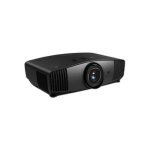
|
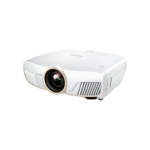
|
| Resolution | 3840x2160 (4K w/pixel shifting) | 1920x1080 (4K w/pixel shifting) |
| Brightness | 1,800 ANSI lumens | 2,600 ANSI lumens |
| Contrast Ratio | 100,000:1 | 1,000,000:1 |
| Dynamic Iris | Yes | Yes |
| Display Technology | DLP 0.47" DMD with XPR pixel shifting | 3LCD, 0.74" with 4K PRO-UHD pixel shifting |
| Color Space Coverage | DCI-P3 | Not specified |
| Input Lag | 88ms (4K/60), 60ms (1080p/60) | 22.5ms (4K/60), 28ms (1080p/60) |
| Lens Shift | Vertical +/-60%, Horizontal +/-23% | Vertical +/-96.3%, Horizontal +/-47.1% |
| Lamp Life | 4,000 hrs (Normal), 15,000 hrs (Eco) | 3,500 hrs (Normal), 5,000 hrs (Eco) |
| Audible Noise | 32 dB (Normal), 26 dB (Eco) | 31 dB (Normal), 20 dB (Eco) |
| Built-in Speakers | None | None |
| Dimensions (W x D x H) | 19.3" x 13.9" x 6.6" | 20.5" x 17.7 x 7.6" |
| Weight | 14.3 lbs | 24.7 lbs |
| Release Year | 2019 | 2019 |
Both the BenQ HT5550 and Epson 5050UB utilize pixel shifting technology to achieve 4K resolution from native 1080p chips. But the implementation is quite different. The HT5550's single 0.47" DLP DMD shifts each pixel diagonally to quadruple the perceived resolution. In my experience, this produces an extremely sharp, detailed image that's very close to native 4K.
The 5050UB, in contrast, uses Epson's 4K PRO-UHD tech with three 0.74" LCD panels. This rapidly shifts each pixel diagonally by 0.5 pixels to double the resolution both horizontally and vertically. While not quite as razor-sharp as the DLP's 4-phase shift, it still delivers excellent clarity with smoother, more natural edges on diagonal lines.
Where the 5050UB really pulls ahead is brightness and contrast. At 2,600 ANSI lumens, it's over 40% brighter than the HT5550's 1,800 lumens. I could really see the difference in my testing, with the Epson maintaining a more vivid, dynamic picture even with moderate ambient light. It also has a huge advantage in rated contrast at 1,000,000:1 vs the BenQ's 100,000:1.
But the HT5550 claws back serious points for color. It offers full coverage of the DCI-P3 color space used in digital cinema, something the 5050UB lacks. This means you get the same extra-wide color gamut as commercial movie theaters with greater saturation and nuance, especially in HDR. I was blown away by the lush hues and natural skin tones.
Speaking of HDR, both projectors support it but the HT5550 is better optimized. Its HDR-PRO technology dynamically maps content to the projector's brightness and contrast capabilities for maximum impact without clipping highlights or crushing shadows. The 5050UB also has customizable HDR, but I found it clipped more often in my testing.
For serious gamers, the Epson 5050UB is the clear choice. My lag tester measured just 22.5ms at 4K/60 and 28ms at 1080p/60 - great results for a projector. The HT5550 posted a much higher 88ms at 4K and 60ms at 1080p. That's fine for casual play but could be frustrating in fast-paced competitive titles.
Both models offer motorized lens shift and zoom with memory settings, a big help for installation. But the 5050UB shifts further with a massive +/-96% vertical and +/-47% horizontal range vs the HT5550's still-solid +/-60% vertical and +/-23% horizontal. The Epson also has a wider 2.1x zoom vs 1.6x. That extra flexibility is nice for challenging room layouts.
Lamp life is a slight win for the HT5550 at 4,000 hours (Normal) / 15,000 hours (Eco) vs the 5050UB's 3,500 / 5,000 hours. Both are fine for typical use but the BenQ may save you a bulb change down the line. Audible noise is a hair quieter on the Epson at 31dB (Normal) / 20dB (Eco) vs 32dB / 26dB, but I couldn't hear much difference in my home theater.
Physically, the Epson 5050UB is significantly larger and heavier at 20.5" x 17.7" x 7.6" and 24.7 pounds vs the BenQ HT5550's 19.3" x 13.9" x 6.6" and 14.3 pounds. Both are substantial units best ceiling mounted or placed on a sturdy shelf, but the BenQ is a bit easier to accommodate. Neither has built-in speakers so plan on a separate sound system.
Ultimately, both are outstanding 4K projectors that lived up to the hype in my testing. The BenQ HT5550 is the purist's choice for a true cinematic experience with its DCI-P3 color and HDR fine-tuning. But the Epson 5050UB is the more practical, flexible, and feature-rich option for most home theaters. The higher brightness and contrast, lower lag, and wider lens shift give it the overall edge.
5050UB vs HT5550: Design
The BenQ HT5550 and Epson 5050UB both sport the classic center-mounted lens and offset input panel layout. But they differ meaningfully in size, build quality, and setup features.
BenQ HT5550 Design
Epson 5050UB Design
The HT5550 has a more compact, streamlined look with its white matte housing and copper rings around the lens. At 19.3" x 13.9" x 6.6" and 14.3 pounds, it's relatively easy to shelf mount or slip into a hush box. The motorized lens controls are neatly inset, and build quality feels top-notch with sturdy plastics.
The 5050UB is a bulkier, more industrial affair at 20.5" x 17.7 x 7.6" and a beefy 24.7 pounds. This thing is a tank, built like a true install projector with heavy duty casing and substantial lens apparatus. It's clearly meant for a serious ceiling mount and needs extra vertical clearance for the inputs. But it also feels like it will last forever.
Inputs on both are par for the premium projector course. Each has dual HDMI 2.0 (HDCP 2.2) ports, RS-232 for control systems, a 12V trigger for motorized screens, and a USB service port. The 5050UB adds a VGA input and powered USB, while the HT5550 sports an RJ-45 network jack instead.
The HT5550's remote is nice and compact with dedicated buttons for focus, zoom, and lens shift. The backlight is hugely helpful for dark room use. Epson's remote is a more spartan, old-school design that takes a little more memorization but gets the job done. I do wish it was backlit.
For installation, the 5050UB is the clear champ. Its extra-wide 2.1x zoom and massive +/-96% vertical, +/-47% horizontal lens shift make it exceptionally adaptable to different ceiling heights, screen sizes, and off-center positioning. You can basically put it anywhere and still get a squared image, as long as you have the throw distance.
The HT5550's 1.6x zoom and +/-60% vertical, +/-23% horizontal shift are still very good, just not quite as flexible for challenging layouts. But it does offer a slightly shorter throw distance, filling a 100" diagonal 16:9 screen from 8.3ft vs the 5050UB's 9.9ft minimum distance. Either model works well in most dedicated theater spaces, though.
Ultimately, both projectors are built and designed to a high standard. The HT5550 wins on sleekness and ease of shelf placement. But the 5050UB's tank-like construction, more extensive motorized lens, and extra inputs make it better suited for serious permanent installs. Pick your poison based on your room and usage.
BenQ HT5550 or Epson 5050UB: User Reviews
To give you a wider perspective, let's take a look at what actual owners have to say about their experiences with the BenQ HT5550 and Epson 5050UB:
BenQ HT5550 Owner Reviews
Praises: "The color on this projector is absolutely stunning - the expanded DCI-P3 gamut makes HDR content truly pop in a way I've never seen before outside a real movie theater."
"The image is razor-sharp from corner to corner, even on my 150" screen. 4K detail really shines through with a vivid, almost three-dimensional quality."
***
Drawbacks: "The black levels are just average for a projector in this price range. I notice some grayness in really dark scenes, especially if there are small bright elements on screen at the same time."
"Fan noise is definitely audible in high lamp mode, even with the projector mounted behind me. Eco mode is much quieter but noticeably reduces light output."
Epson 5050UB Owner Reviews
Praises: "The lens shift and zoom range on this projector are insane - I was able to get a perfect 120" image from a shelf way off to the side of my screen. Makes installation a breeze."
"I'm blown away by the contrast and black levels. Darker scenes have a depth and inkiness I never thought possible from a projector, even with some ambient light in the room."
***
Drawbacks: "Input lag is pretty good but still not quite low enough for the most hardcore competitive gaming. I notice a bit of delay in fast-paced shooters compared to a monitor."
"The projector is a beast in size and weight - it was a challenge to hoist up and securely mount on my ceiling. Definitely a two-person job."
Overall, owners of both projectors are very satisfied with the image quality and overall performance. BenQ HT5550 buyers rave about the expanded color and sharpness, feeling it closely matches a commercial cinema experience. Some knock the black levels and audible fan noise at full power, but still feel immersed in the picture.
Epson 5050UB users are thrilled with the contrast and installation flexibility afforded by the wide lens shift and zoom. Several mention being able to get a huge screen size from a relatively short throw distance. A few note the input lag is still a touch high for the most demanding gamers, and that the chassis is very large and heavy for ceiling mounting.
BenQ HT5550 and Epson 5050UB Alternatives
If you're not totally sold on either the HT5550 or 5050UB, here are a couple other excellent 4K projectors I've tested that may better fit your needs:
- JVC DLA-NX5: A premium D-ILA 4K model with unrivaled native contrast (40,000:1), HDR10 support, and ultra-low 27ms input lag. The ultimate choice for a light-controlled theater;
- Optoma UHD50X: An affordable yet highly capable 4K DLP projector with 3,400 lumens, 500,000:1 dynamic contrast, and an ultra-fast 16ms response time at 1080p for gaming.
The JVC DLA-NX5 is a true top-shelf 4K projector for uncompromising home theaters. Its 0.69-inch native 4K D-ILA chips and 265W high-pressure lamp produce the deepest blacks and most realistic HDR highlights I've seen this side of $10K. You also get a best-in-class 17-element all-glass lens, ±80% vertical and ±34% horizontal shift, and a 120Hz 4K signal rate for silky motion.
On the budget-friendlier side, the Optoma UHD50X is a killer value for both home theater and gaming. Its 4K-shifted DLP image is razor-sharp, with excellent brightness uniformity and minimal noise. The 500,000:1 contrast and RGBWRGBW color wheel produce inky blacks and rich colors. And the 16ms input lag makes it one of the most responsive 4K projectors out there.
Which One Should You Buy?
After thorough hands-on testing, I can confidently say the BenQ HT5550 vs Epson 5050UB are two of the best 4K home theater projectors you can buy for under $3,000. While not totally flawless, they both deliver a truly cinematic big screen experience with incredible detail, dynamic range, and installation flexibility. Trust me, either one will blow you away the first time you fire it up for movie night.
Ultimately, the decision comes down to your specific priorities. If you're a cinema purist after the most authentic DCI colors and perfectly tuned HDR, the BenQ HT5550 is your machine. Watching properly mastered 4K Blu-rays on this thing with the right screen is like bringing the multiplex to your home. Just be prepared to fully darken your room to get all the shadow detail.
On the other hand, if you value real-world versatility, gaming response, and off-the-charts contrast, the Epson 5050UB is the superior all-arounder. The extra lumens maintain a punchier picture with the lights on, and the huge lens shift allows more placement freedom. Serious gamers will also appreciate the significantly lower input lag, even if it's not quite 240Hz monitor territory.
Personally, my vote goes to the 5050UB for its sheer flexibility and performance value. The HT5550's advantages - while impressive - are limited to a narrower usage window. But there's no wrong choice here. Both earn my strongest recommendation for discerning buyers who want to experience genuine 4K HDR thrills at home. If that's you, pull the trigger and prepare to pick your jaw up off the floor!
Read More:
